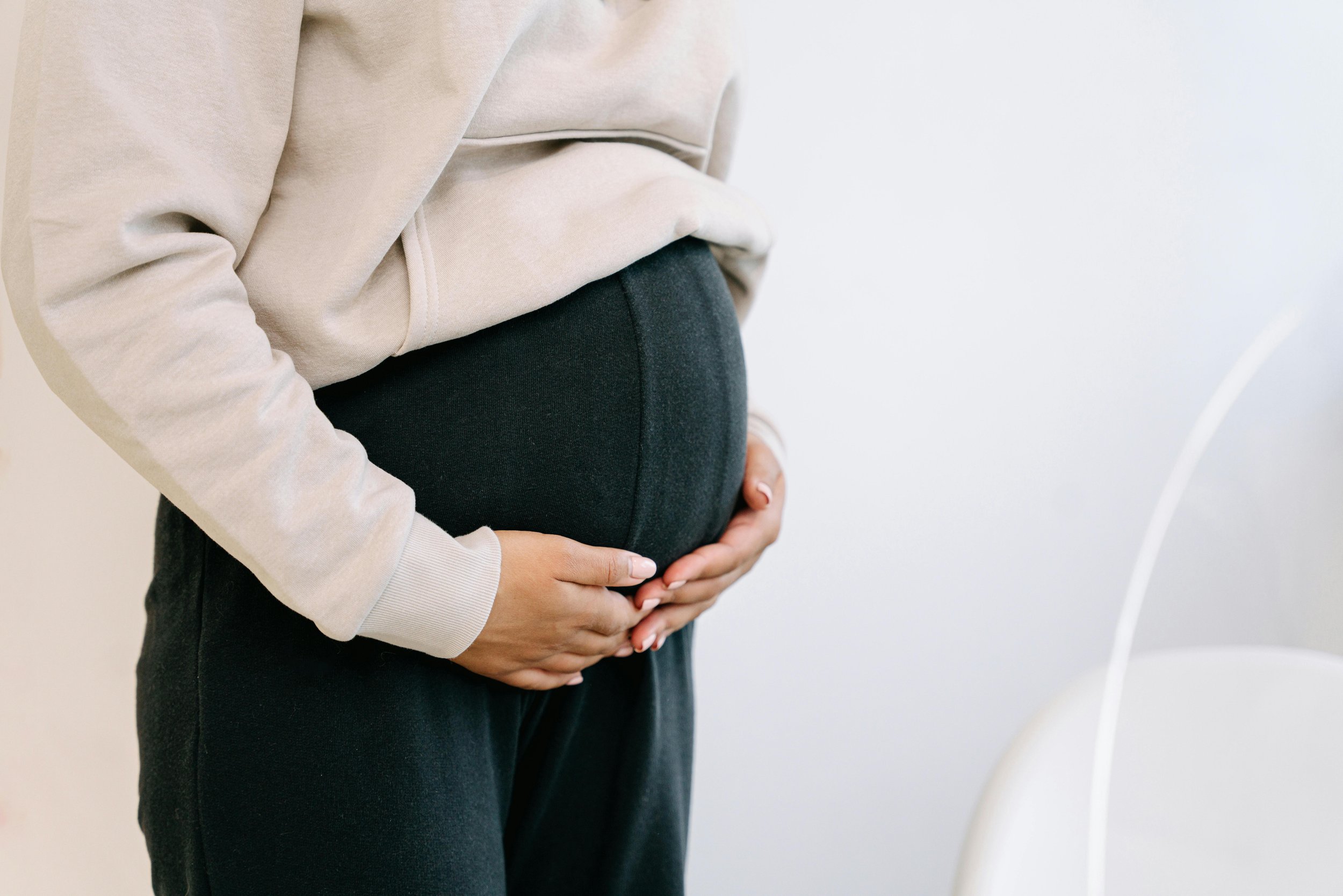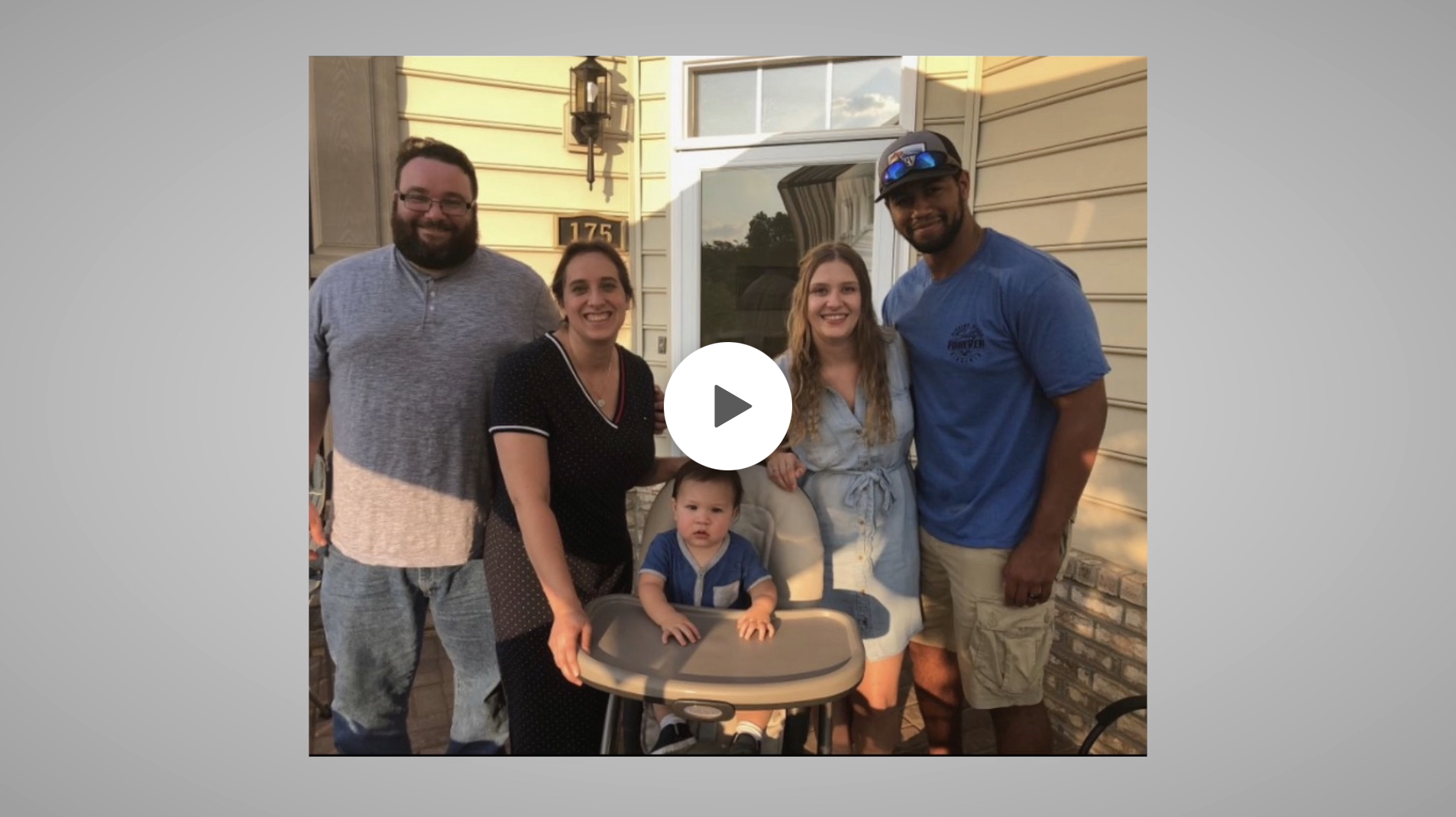
We’re Here For You
Supportive and Compassionate Care for Expectant Parents Anywhere in Virginia, Available In-person
Services For Expectant Mothers
Free, no-pressure options counseling in-person & virtually
Assistance in creating a personalized adoption plan
Post-adoption support to ensure continued care
Help with pregnancy-related medical expenses
Referrals to community resources for ongoing needs
FLS supports openness in adoption while honoring the birth parent’s wishes. If it is the birth parent’s desire, building a lifelong relationship between birth and adoptive families can provide honesty and a greater understanding for the adoptee.
The Adoption Process
Real Stories, Real Courage
Hear From Birth Moms Who Have Worked with Family Life Services
At Family Life Services, we don’t believe adoption is best for everyone, but our goal is to provide thorough education to equip the expectant parents to make the right choice for themselves, their baby, and their situation.
Pregnancy FAQ’s
-
Absolutely, we encourage you to choose a family whom you feel is the best choice. You can see mini-profiles of some of our waiting adoptive families here. Your caseworker has expanded photo profiles of each family that includes pictures and detailed information about the family such as descriptions of each prospective parent and the couple, hobbies, interests, occupations, and feelings about adoption. Once you are actively in adoption counseling with our agency, we can arrange for you to connect with families you may be interested in learning more about through a face-to-face or virtual meeting. You’re encouraged to ask questions to gather any information that will help you choose the right family for your child.
-
There are three main types of adoption: open, semi-open, and closed adoption. A birth parent can choose how much communication they’d like to have with an adoptive family. Most adoptions currently have some type of ongoing communication with a relationship that includes visits, phone calls, and pictures/letters/texts and/or emails. It can be helpful to work with your caseworker to develop an initial plan for communication on paper so that everybody knows what to expect as you are getting to know each other and develop a trusting relationship. There are many benefits to having ongoing communication between a birth family and an adoptive family including easy access of information, health/medical history, and allowing the adoptee to know both sides of his or her family backgrounds as they build their own identity.
-
Open adoption includes direct contact between the adoptive family and the birth family by choosing to exchange information such as last names, phone numbers, email addresses, etc. A semi-open adoption can include various ways of communicating but the birth family and adoptive family use the agency as a mediator and do not exchange direct contact information. Both parties know non-identifying information about the other such as first names, state of residence, etc. but do not exchange contact information such as last names, addresses, phone numbers, etc. as all communication is sent to and from the adoption agency to the other party. Mediated adoption relationships can develop into open adoption relationships with the consent of both parties.
-
Many times, the birthparents and adoptive parents decide on a name together which may incorporate a name that the birthparents have chosen with a name that the adoptive parents choose. Family Life Services encourages the birthparent(s) to choose a name for their child that will be used immediately upon the child’s birth and on the original birth certificate, if they have not had the opportunity to discuss this with the adoptive family prior to birth. In this case, adoptive parents may keep this name or they may change the child’s name, if they desire. Occasionally, a birthparent chooses a name that has great significance and requests that the adoptive family keep the name they have chosen or the birthparent may ask that the adoptive family choose the child’s name in its entirety.
-
Family Life Services charges an adoption fee to the adoptive parents to cover legal, medical, and counseling expenses. Part of that fee is used to cover the birth mother’s medical expenses associated with her pregnancy if she chooses to make an adoption plan. The medical expenses are paid after the child has been legally placed with the adoptive parents. An itemized bill of pregnancy-related medical expenses must be submitted to the agency in order for these expenses to be covered.
-
If a birth mother is unable to work, reasonable living expenses such as rent, utilities, and food may be covered by the agency. The birthmother’s inability to work, due to the pregnancy, must be documented by a letter from her physician prior to any financial assistance. The payment of these expenses must be approved by the agency’s director and must be legally allowable under the Code of Virginia.
-
No. Even if the birthparent is a minor, they are solely responsible for making the decisions for their child’s future and can make an adoption plan without their parents’ consent.
-
Family Life Services makes every effort to extend the same adoption services to the birthfather and the birthmother. It is ideal to have medical, social, and educational information about the birthfather in order to provide the adoptive parents with a complete history for the child. However, it is not always possible if the birthfather’s whereabouts is unknown, his identity is unknown, or if he is unwilling to provide information to the agency. If we are unable to receive this information from him directly, we will request that the birthmother give the agency as much information as possible about the birthfather, including any contact information, so we can notify him of his rights pertaining to the adoption plan.
-
It is not required that the birthfather be present at all, but it is preferable for him to have contact with the adoption caseworker and participate in adoption counseling, if he desires to be involved. The agency will provide pre-adoption and post-adoption counseling to him at no expense, if he requests such services.
A putative father who believes that he may have fathered a child can protect his rights by registering with the Virginia Birth Father Registry at www.vabirthfatherregistry.com or calling 1-877-433-2339.
-
Each couple must have a thorough evaluation, called a home study, completed by a licensed agency in their state of residence. Completing that process verifies that they meet the state requirements to adopt and includes several interviews with a caseworker, a thorough CPS and FBI background investigation, medical evaluations, employment/income verification, and a safety inspection of their home.
Additional requirements in the FLS program include the following: 1) Must be between age 22 and 47 at the time of application, 2) Both husband and wife must be Christians and active members in a local church, 3) Must be married at least three years, 4) Must be drug and tobacco free and 5) Must have no more than three children already in the home.
-
Family Life Services works with adoptive families from all over the United States, except New York State (because of their state laws). However, the majority of the adoptive families in our program live on the East Coast because of closer proximity to the agency.
-
The adoption agreement, or the Permanent Entrustment Agreement, cannot be signed by the birth mother until after the birth of the baby. This agreement is usually signed in the hospital by the birth mother with her caseworker. If a birth father is in agreement with the adoption plan, he may sign a Permanent Entrustment Agreement either prior to or following the baby’s birth.
-
Yes. Signing the adoption papers only terminates your rights if you do not revoke the agreement before the child is 10 days old, before 7 days have passed from the signing of the Permanent Entrustment Agreement, or before the child is placed in the home of the adoptive parents.
-
If you choose to make an adoption plan, your baby will leave the hospital either with the chosen adoptive family or with a Family Life Services approved foster family. Your caseworker will work with you to determine the best plan for you and your baby.
-
Adoptive families want to learn as much as you are willing to share about yourself, your family, and your background. Our hope is that, through building a relationship over time, you can both learn more about one another. Initial information they would receive from the agency would be non-identifying but includes your social/medical history, the baby’s medical history, any pictures and letters you wish to share with them, etc.
-
Family Life Services is available after the adoption to provide adoption coaching with the birthparent at any time following an adoption. Depending on your location, the FLS caseworker can continue to provide support through in-person meetings, virtual meetings, phone, or email contact. We host an Annual Birthmother Gathering in Lynchburg, Virginia for ladies to gather for a therapeutic retreat with other women who share similar experiences. In addition, Family Life Services offers an online, private Facebook Group for birthmothers and birthfathers that provides an opportunity to share, receive support, and ask questions of other birthparents. We have a local counseling office with therapists who have completed Training for Adoption Competency (TAC) that we partner with to provide professional counseling relating to the adoption plan. The agency will cover some out-of-pocket expenses for professional counseling with a TAC therapist during the first year following adoption, if insurance does not cover these services. If a birth parent desires to connect with a professional counselor in their area, the FLS caseworker can help them identify someone who could provide this assistance.
Don’t see your question?
We’re with You Every Step of the Way
FLS offers ongoing care for birthparents, including:
Annual Birthmother Gatherings.
Access to a private online support group.
Professional counseling with adoption-trained therapists (costs may be covered for the first year).














